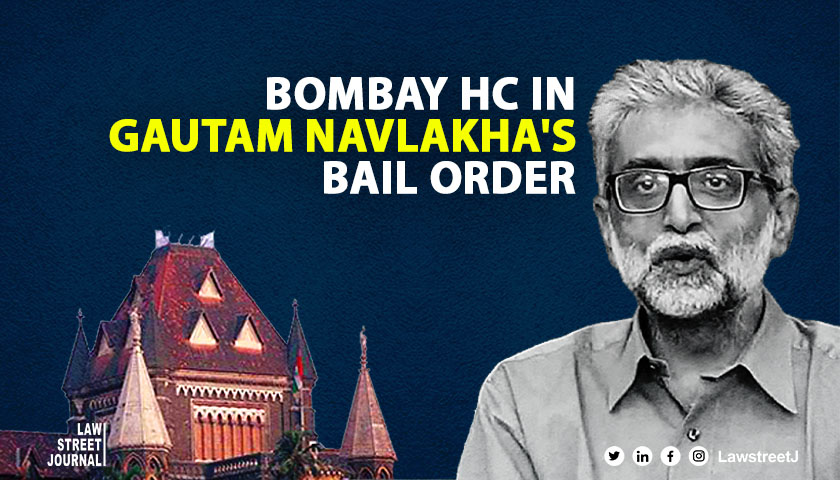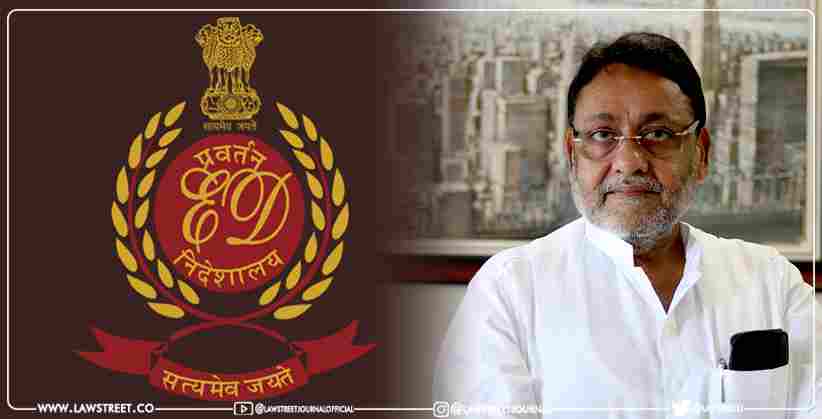While granting bail to the senior journalist and human rights activist, Gautam Navlakha, the Bombay High Court observed that there is no material to infer that he had committed a terrorist act under the Unlawful Activities (Prevention) Act. Navlakha was arrested in was arrested on April 14, 2020 for his alleged involvement in the attack on Punes Bhima Koregaon village.
According to us, there is no material to infer conspiracy to commit an offence as contemplated under Chapter IV of the UAP Act. It being the fact on record, neither the provisions of Sections 15, 18 or 20 of the UAP Act can be prima facie applied to the Appellant at this stage. As observed by the Honble Supreme Court in the case of Vernon, mere participation in seminars by itself cannot constitute an offence under the bail-restricting Sections of the 1967 Act, which he has been charged.
In view of the above discussion, we are of the prima facie opinion that on the basis of the material placed before us by the NIA, it cannot be said that there are reasonable grounds for believing that the accusation against the Appellant is prima facie true to attract Sections 16, 18, 20 and 39 of UAP Act, Justices observed.
Courts analysis
The Court firstly observed that it had to see whether there were reasonable grounds in the material placed before it for believing that the accusation against the Appellant is prima facie true.
Basis this, the Court went through the contents of several documents produced by the prosecution.
The prosecution has relied upon this several letters and other documents to strengthen its case against Navlakha. Of them, the Prosecution alleged that one of the letters dated July 30, 2017 written by one Sudharshan to the Appellant clearly revealed their intention of a larger conspiracy to destabilize the Government. Among other things, the letter mentioned that all the party members must not bow before the gross misuse of power of pressure tactics employed by the State police.
Looking at the evidence against the appellant, the Court said,
In the present case, the incriminating material as adverted herein above does not in any manner prima facie leads to draw an inference that, Appellant has committed or indulged in a terrorist act as contemplated under Section 15 of UAP Act.
With regard to the documents which werent recovered from the Appellant but mentioned his name, the High Court held that these communications/ contents weak probative value or quality. The content of these letters/documents through which the Appellant is sought to be implicated are in the form of hearsay evidence, as they are recovered from co-accused. The association of the Appellant with the activities of the designated terrorist organization is sought to be established through those communications. The actual involvement of the Appellant in any terrorist act cannot be even inferred from any of the communications and or statements of the witnesses.
As for certain documents which were seized from the co-accused, they would also fall under the purview of hearsay evidence as far as Appellant is concerned. Even though, the authors had expressed their intention to cause fatality to the politically influential persons, the Appellant only being a member of the party, cannot be prima facie held to be a co-conspirator to it., the Court stated. From the material on record, it appears to us that, no covert or overt terrorist act has been attributed to the Appellant, the Court observed.
According to us, the record prima facie indicates that, it was at the most the intention of the Appellant to commit the alleged crime and not more than it. The said intention has not been further transformed into preparation or attempt to commit a terrorist act, to attract Section 15 of the UAP Act, the Court further added.
One of the documents that the Prosecution referred was another letter written by the appellant to a Judge of U.S. Court requesting to consider clemency to Ghulam Fai. This, the Court said, has no correlation with the present crime alleged against Appellant. It appears that, the said letter was written by Appellant in his individual capacity and at the most it can be said, being a member of his party and nothing more.
At most, Appellant is a member of CPI (M) and therefore, it would attract provisions of Sections 13 and 38 of UAPA, the Court held. According to us, there is no material on record to indicate that, there are reasonable grounds for believing that the accusation against the Appellant under Sections 16, 17, 18, 20 and 39 of UAP Act are prima facie true.
Considering that co accused persons Arun Ferreira, Vernon Gonsalves, Anand Teltumbde and Mahesh Raut were granted bail either by the Supreme Court or the High Court, the Court granted bail to Navlakha as well by imposing certain conditions.



![Husband Can Also Claim Alimony/Maintenance From Wife: Bombay High Court Orders Woman To Pay Alimony To Ex-Husband [Read Order]](/secure/uploads/2022/04/lj_2823_Divorce.jpg)








